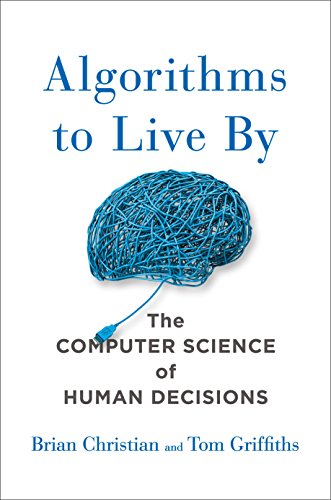
About
Title: Algorithms to Live By Authors: Brian Christian, Tom Griffiths Category:supplementals Number of Highlights: 10 Date: 2024-01-15 Last Highlighted: **
Highlights
Any yardstick that provides full information on where an applicant stands relative to the population at large will change the solution from the Look-Then-Leap Rule to the Threshold Rule and will dramatically boost your chances of finding the single best applicant in the group.
Optimal stopping tells us when to look and when to leap. The explore/exploit tradeoff tells us how to find the balance between trying new things and enjoying our favorites. Sorting theory tells us how (and whether) to arrange our offices. Caching theory tells us how to fill our closets. Scheduling theory tells us how to fill our time.
Exploration in itself has value, since trying new things increases our chances of finding the best. So taking the future into account, rather than focusing just on the present, drives us toward novelty.
To live in a restless world requires a certain restlessness in oneself. So long as things continue to change, you must never fully cease exploring.
When balancing favorite experiences and new ones, nothing matters as much as the interval over which we plan to enjoy them.
The success of Upper Confidence Bound algorithms offers a formal justification for the benefit of the doubt. Following the advice of these algorithms, you should be excited to meet new people and try new things—to assume the best about them, in the absence of evidence to the contrary. In the long run, optimism is the best prevention for regret.
By entering an almost purely exploit-focused phase, the film industry seems to be signaling a belief that it is near the end of its interval.
Sorting something that you will never search is a complete waste; searching something you never sorted is merely inefficient.
Tags:efficiency,algorithm,expense
In any optimal stopping problem, the crucial dilemma is not which option to pick, but how many options to even consider.
Tags:algorithm
This is the first and most fundamental insight of sorting theory. Scale hurts.